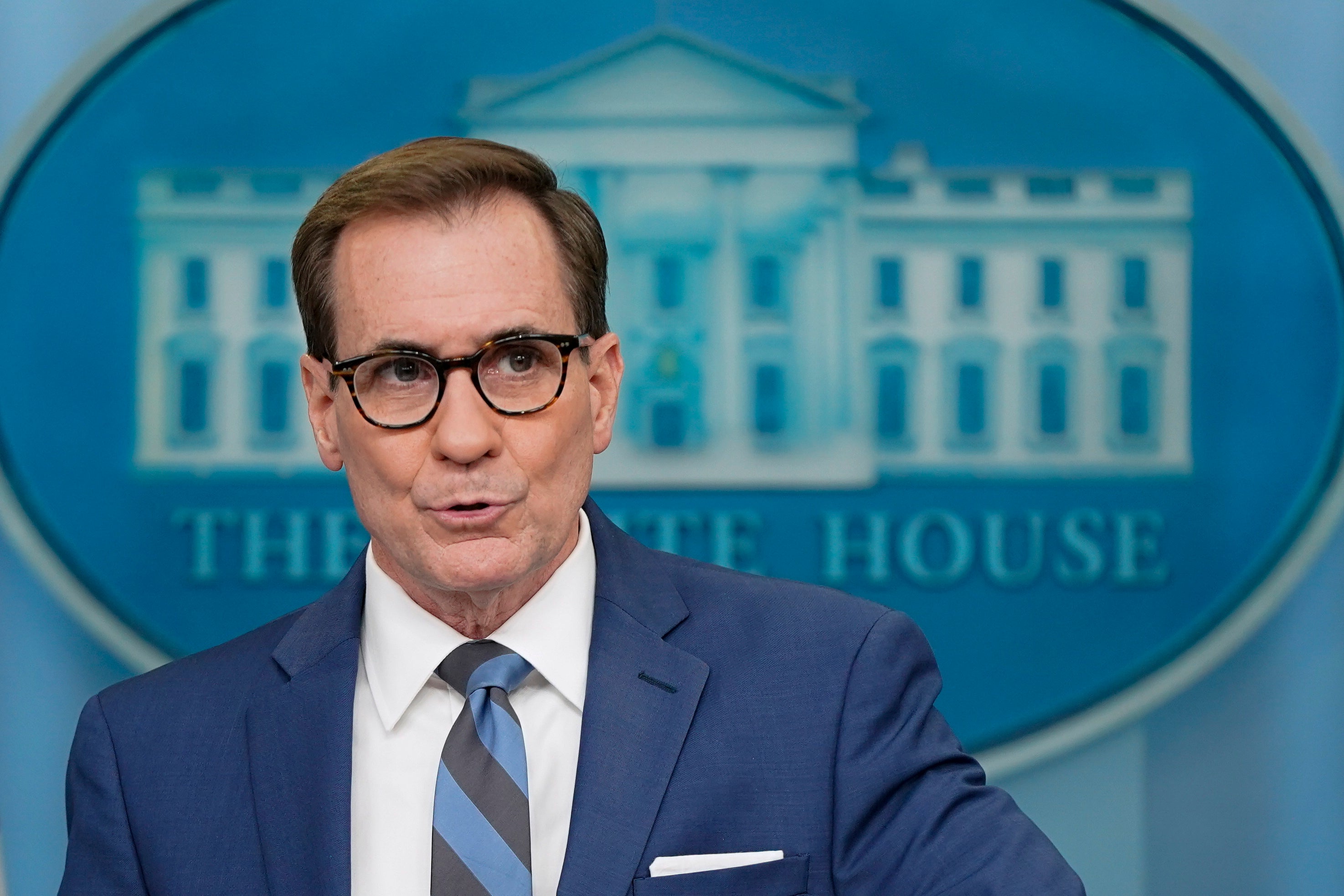US: Russia, Iran moving toward full defense ‘partnership’
The Biden administration is accusing Russia of moving to provide advanced military assistance to Iran, including air defense systems, helicopters and fighter jets

Your support helps us to tell the story
From reproductive rights to climate change to Big Tech, The Independent is on the ground when the story is developing. Whether it's investigating the financials of Elon Musk's pro-Trump PAC or producing our latest documentary, 'The A Word', which shines a light on the American women fighting for reproductive rights, we know how important it is to parse out the facts from the messaging.
At such a critical moment in US history, we need reporters on the ground. Your donation allows us to keep sending journalists to speak to both sides of the story.
The Independent is trusted by Americans across the entire political spectrum. And unlike many other quality news outlets, we choose not to lock Americans out of our reporting and analysis with paywalls. We believe quality journalism should be available to everyone, paid for by those who can afford it.
Your support makes all the difference.The Biden administration is accusing Russia of moving to provide advanced military assistance to Iran, including air defense systems, helicopters and fighter jets, part of deepening cooperation between the two nations as Tehran provides drones to support Vladimir Putin's invasion of Ukraine.
White House National Security Council spokesman John Kirby on Friday cited U.S. intelligence assessments for the allegations, saying Russia was offering Iran “an unprecedented level of military and technical support that is transforming their relationship into a full-fledged defense partnership.”
Kirby said Russia and Iran were considering standing up a drone assembly line in Russia for the Ukraine conflict, while Russia was training Iranian pilots on the Sukhoi Su-35 fighter and Iran could receive deliveries of the plane within the year.
“These fighter planes will significantly strengthen Iran’s air force relative to its regional neighbors,” Kirby said.
The U.S. allegations are part of a deliberate effort by the U.S. to drive global isolation of Russia, in this case targeted at Arab nations who have looked to contain Iran's regional malevolence and who have not taken a strong stance against Russia's invasion of Ukraine.
Earlier this year, the Biden administration accused Saudi Arabia of siding with Russia in the conflict by shepherding cuts by the OPEC+ cartel to boost the price of oil, crucial to funding Moscow's war effort. Saudi Arabia and Iran have been on opposite sides of a yearslong proxy war in Yemen.
Kirby said the arms transfers were in violation of U.N. Security Council resolutions and that the U.S. would be “using the tools at our disposal to expose and disrupt these activities."
Concerns about the “deepening and a burgeoning defense partnership” between Russia and Iran come as the Biden administration has repeatedly accused Iran of assisting Russia with its invasion of Ukraine.
The administration says Iran sold hundreds of attack drones to Russian over the summer. Kirby on Friday reiterated the administration's belief that Iran is considering the sale of hundreds of ballistic missiles to Russia, but acknowledged that the U.S. doesn’t have "perfect visibility into Iranian thinking on why" the deal hasn't been consummated.
The White House says Russia has also turned to North Korea for artillery as the nine-month war grinds on.
The White House has repeatedly sought to spotlight Russia’s reliance on Iran and North Korea, another broadly isolated nation on the international stage, for support as it prosecutes its war against Ukraine.
The Biden administration recently unveiled sanctions against Iranian firms and entities involved in the transfer of Iranian drones to Russia for use in Ukraine. It all comes as the administration has condemned the Islamic republic’s violent squelching of protests that erupted throughout Iran after the September death of 22-year-old Mahsa Amini while she was held by the morality police.
Even as the White House has accused Iran of backing Russia’s war effort, the administration has not abandoned the possibility of reviving the 2015 Iran nuclear deal — scuttled by the Trump administration in 2018. The pact, known as the Joint Comprehensive Plan of Action or JCPOA, would provide Tehran with billions in sanctions relief in exchange for the country agreeing to roll back its nuclear program to the limits set by the 2015 deal.